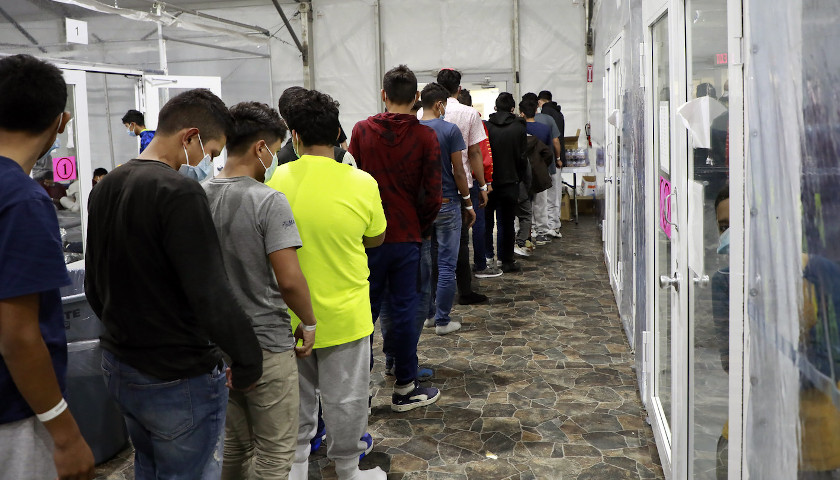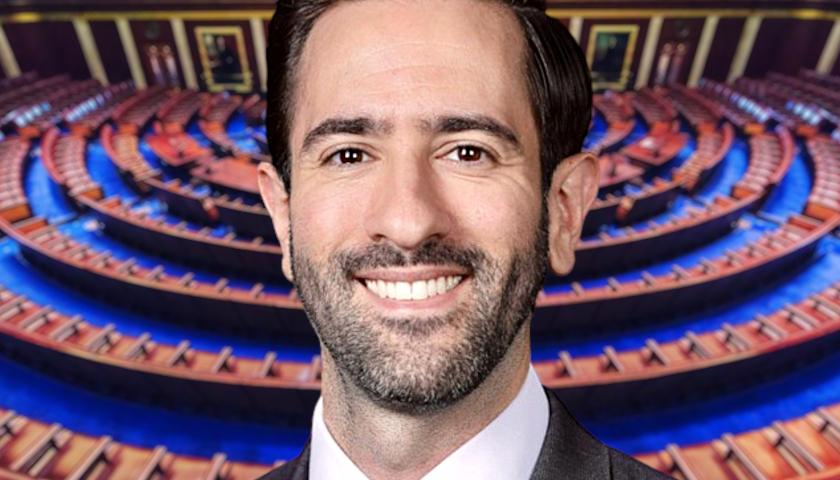by Ben Whedon
Former President Donald Trump attracted intense media scrutiny and criticism over the detention of illegal immigrants. But now the issue has boomeranged on the Biden administration and his party, which is being cited by government watchdogs for poor conditions at Customs and Border Protection (CBP) and Immigration and Customs Enforcement (ICE) facilities during the surge at the southern border.
More than six million immigrants have illegally entered the United States during Joe Biden’s presidency. The influx appears to have placed considerable strain on facilities intended to accommodate fresh arrivals. Federal agencies are seemingly unable to provide adequate service in the face of the sheer volume.
Under congressional mandate, the Department of Homeland Security’s Office of Inspector General (IG) has conducted unannounced visits to CBP holding facilities across the country, many of which have fallen well shy of agency standards.
Since June, the IG has published the results of its surprise visits to facilities in the Yuma and Tucson areas of Arizona; the Rio Grand Valley area; an ICE detention center in Lumpkin, Ga.; another in Bowling Green, Va.; and CBP holding facilities around El Paso, Texas.
Here is some of what was found:
An El Paso facility was overcrowded and held detainees for too long
El Paso is home to key ports-of-entry along the Mexican frontier and has borne much of the influx of migrants. The IG detailed its discoveries from its November 2022 inspections of three facilities in the area.
The most glaring issues occurred at an El Paso processing center, according to the IG’s report. CBP facilities are usually equipped only for short-term detention as the agency either repatriates or transfers its detainees to another agency. The 2015 National Standards on Transport, Escort, Detention, and Search (TEDS) set a 72-hour detention limit before the agency must transfer a detainee.
“At the time of our inspection, Border Patrol held 1,903 detainees in custody at the El Paso processing center (M-CPC). Of the 190 detainees we sampled, 48 percent were ultimately held in custody longer than specified in the National Standards on Transport, Escort, Detention, and Search (TEDS), which generally limit detention to 72 hours,” the IG wrote.
“The M-CPC also was overcrowded, and the increased migrant encounters exacerbated staffing challenges for El Paso Border Patrol, making compliance with some TEDS standards difficult. Border Patrol facilities generally met TEDS standards to provide drinking water, meals and snacks, access to toilets, sinks, basic hygiene supplies, and bedding,” it continued. “However, compliance with standards such as segregating males, females, and juveniles; managing property; providing regularly scheduled meals and showers; and maintaining cleanliness of holding rooms was inconsistent. We also found data integrity issues in Border Patrol’s electronic system of record, e3.”
The report noted that many detainees had been held too long even during the February 2023 follow-up visit. It did acknowledge that the Border Patrol had expanded holding capacity, but that it “did not increase the number of agents commensurate with the capacity of the additional facility.”
CBP concurred with the IG’s five recommendations to improve the situation, all of which are officially resolved and remain open. IG recommendations remain open until the agency submits proof it has followed through on the agreed upon corrective measures.
An ICE detention center in Virginia failed to meet health standards and respond to detainee grievances
The report on ICE’s Caroline detention center in Bowling Green, Virginia, also found standards violations, largely in relation to detainee health and interactions with deportation officers. The IG stated that the facility “complied with standards for classification, segregation, use of force, recreation, and facility conditions.” It “also found that Caroline complied with most standards for medical care, but the absence of a dentist caused delays in advanced dental care, and outdated guidance for chronic care was concerning.”
ICE’s Caroline facility further failed to follow standards for its voluntary work program, did not properly record detainee requests, nor did it respond to them in a timely manner.
“Further, ICE deportation officer visits to the housing units were not frequent or consistent, and daily activity schedules were not posted in all housing units, as required,” it wrote. “In addition, Caroline did not consistently display lists of legal providers or visitation hours in the housing areas and common spaces. Finally, Caroline did not always meet cleanliness standards for food preparation.”
The IG issued eight recommendations to address its concerns, though ICE only concurred with two. Of those eight, four remain open and unresolved.
A Georgia ICE facility inappropriately disciplined detainees
At another ICE detention facility in Lumpkin, Ga., the watchdog found a catalogue of issues, though the agency was more receptive to its recommendations in that instance.
“[W]e found that Stewart [the facility] complied with standards for the voluntary work program, law libraries and legal materials, and facility conditions,” the IG wrote. “However, Stewart did not meet all standards for special management units, custody classification, grievances, staff-detainee communication, and medical care, compromising the health, safety, and rights of detainees.”
“Specifically, Stewart inappropriately and repeatedly disciplined detainees who should have been placed in administrative segregation. We also observed issues with classification, including commingling of high and low custody detainees,” that report continued. “The grievance and staff detainee communication programs at Stewart were both deficient. For example, ICE did not always visit detainee housing units according to the schedule provided to detainees.”
“We also found that the Stewart medical unit was not appropriately conducting ‘sick call’ for routine medical requests and was not complying with some medical care standards. Finally, ICE paid for unused bedspace because its population did not meet the guaranteed minimum outlined in the contract with Stewart,” it concluded.
Unlike the situation in Bowling Green, ICE concurred with all nine of the IG recommendations, which remain resolved and open as of press time.
– – –
Ben Whedon is an editor and reporter for Just the News. Follow him on X, formerly Twitter.








